Award winning dermatology service, with over 20 years on experience
Short waiting lists, on some occasions offering same week appointments
Safe environment, in Care Quality Commission approved facilities
Scabies Treatments Include:
treatment for scabies uk
Scabies is a commonly-encountered skin condition caused by a microscopic parasite called Sarcoptes scabiei. This mite eats away at the epidermal layer of the skin, burrowing its way around the affected area and causing an intense itch. Interestingly, it can take many weeks for this itch to manifest itself following initial infection, as it takes time for the body to develop an allergic reaction to the mite. Scabies can affect individuals of all ages, which is why swift treatment should be provided if suspected. Transmission of scabies from person-to-person usually occurs via prolonged physical contact but might also occur through contact with infested towels, clothes or bedding; although scabies cannot be interchanged between animals and humans – pet mites do not affect humans in any way.
WHAT CAUSES SCABIES?
Scabies is caused by an infestation of small mites that invade the skin and cause an intense, itchy rash. These mites thrive in warm and moist areas, such as the armpits, genitals, or between buttocks folds. However, they can spread to any part of the body, although faces and necks are generally not affected by scabies. Scabies can only be contracted through prolonged skin-to-skin contact with a person already infected with the parasite; brief encounters such as a handshake or hug will not be enough to produce transmission.
WHAT ARE THE SYMTOMS/TYPES OF SCABIES?
Multiple tiny red insect bites in a row are the typical finding with scabies. The burrows created by the mites appear as small curves or lines which then may spread and turn into small spots. Due to the excessive itchiness, scaly inflamed scratch marks may also become visible, and scabies infestation often resembles severe eczema. The rash can appear anywhere on the body but often starts between the fingers.
Intense itching, particularly at night and in warm environments, is the main complaint with this condition. A raised rash or spots which are red in appearance are seen in scabies. There are generally no serious health consequences of uncomplicated scabies, but it is important to seek treatment quickly, otherwise symptoms can persist for months or even years.
A rare, highly-contagious, form of the disease referred to as crusted or Norwegian scabies, which involves extensive areas of the body being infested with a large number of mites can affect those whose natural defence mechanisms are weakened such as people who have cancer or AIDS.
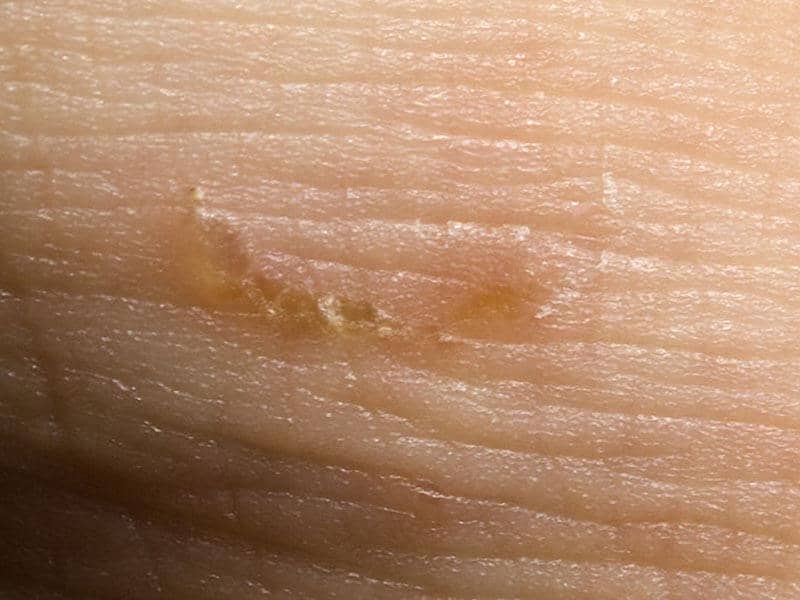
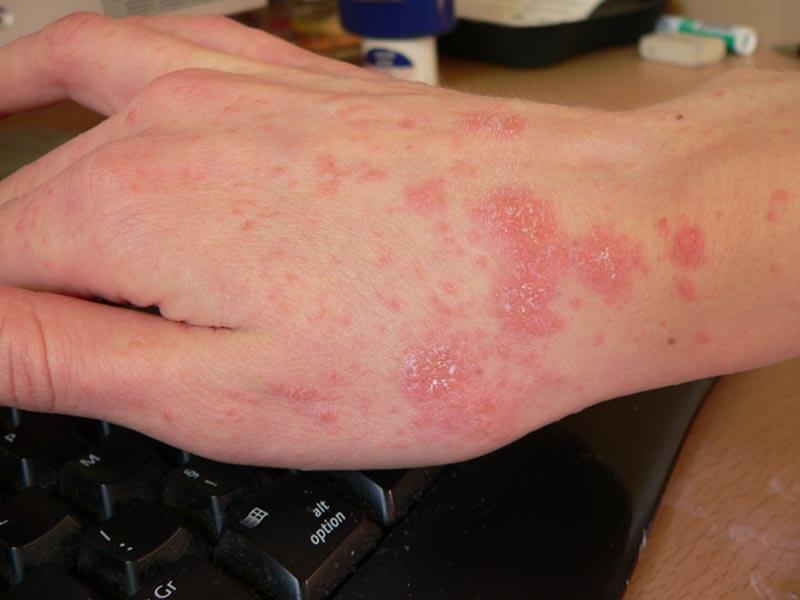
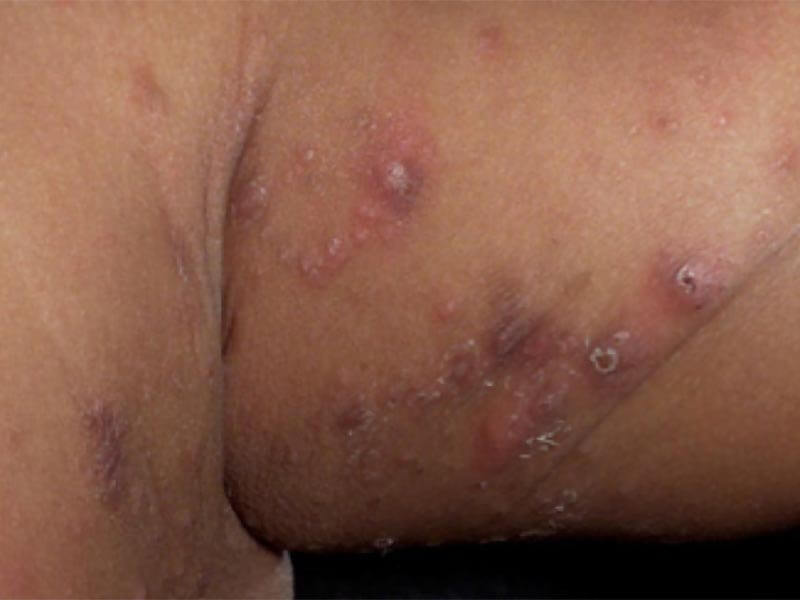
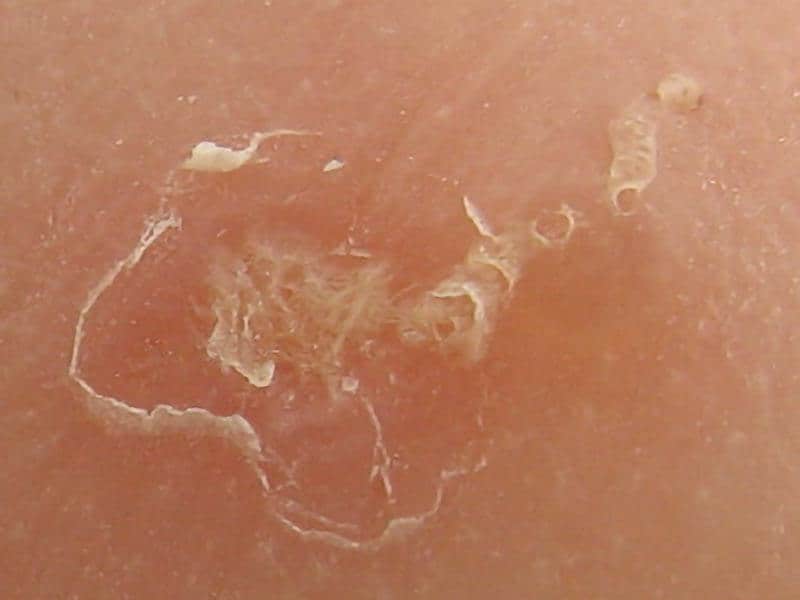
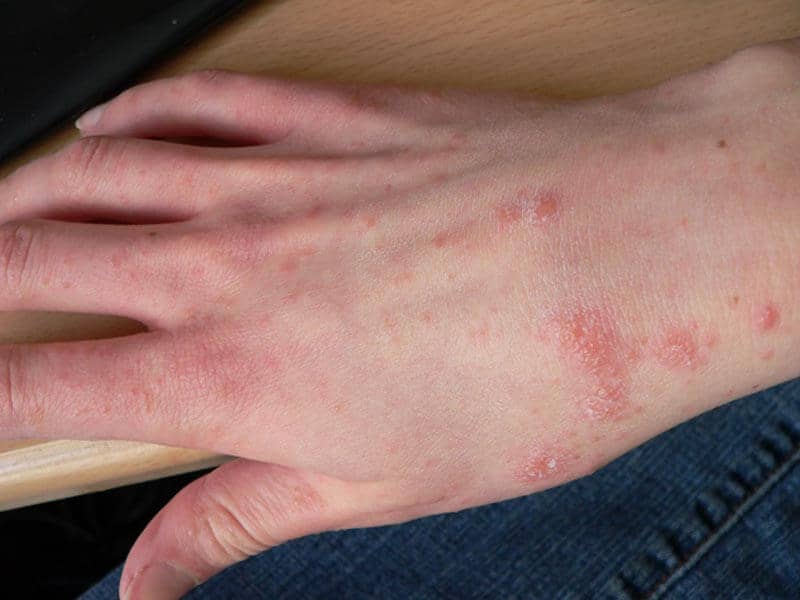
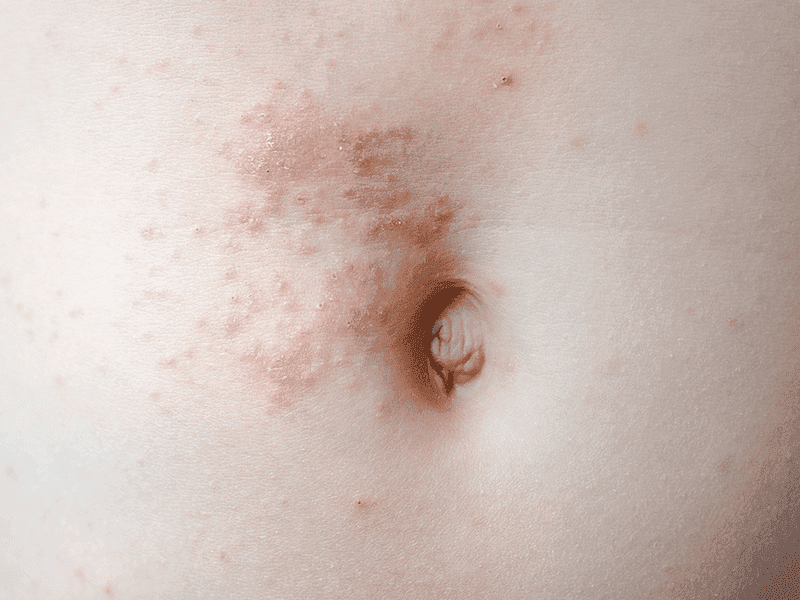
Is there a treatment for scabies?
When it comes to scabies, the most established and effective treatment is using a medicated cream containing permethrin. If this fails for any reason, malathion can be used as secondary medication. For more severe cases of scabies, Ivermectin tablets are given. As the itching and other symptoms result from an allergic reaction, it may take some time after eradicating the mite before they completely disappear. To prevent re-infection of the disease it is important to avoid close contact or sharing items used by others during treatment. We further advise that all close contacts (household members and sexual contacts) who have come in contact with an infected individual be treated, even if they don’t show any signs or symptoms of the disease.
FREQUENTLY ASKED QUESTIONS
WHAT CAN I DO AT HOME IF I HAVE SCABIES?
- Wash all the bedding and clothing in the house at a high temperature on the first day of treatment
- Put any clothing that cannot be washed into a sealed bag for 3 days until the mites die
- Stop babies and children from sucking the treatment lotion from their hands by putting mittens on them
- Don’t have sex or close physical contact until the course of treatment is finished
- Don’t share bedding, clothing or towels with someone with scabies
HOW LONG DOES IT TAKE TO GET RID OF SCABIES?
You will be able to go back to school/work 24 hours after the first treatment. It may take a couple of weeks for the itching to stop even after the mites have died.
IS SCABIES CAUSED BY BAD HYGINE?
No, scabies has nothing to do with poor hygiene, anyone can get it. Scabies is contagious and can spread easily from skin to skin contact so this should be avoided until treatment is complete.
CAN I GET SCABIES FROM MY PETS?
You cannot get scabies from pets.
WHERE ARE SCABIES RASHES MOST COMMONLY FOUND?
The burrows of scabies typically are seen in folds of skin. Even though any part of the body can be affected, the rashes are most often found:
- between the fingers
- in the armpits
- around the waist
- on the inside of the wrists
- on the inner elbows
- on the soles of the feet
- around the breasts
- around the genitals
- on the buttocks
- on the knees
In young children, it is also common to see rashes
- on the scalp
- palms of the hands
- soles of the feet
REQUEST A CALL BACK
Please fill in this form and one of our team will give you a call back to arrange a consultation with one of our expert dermatologists.
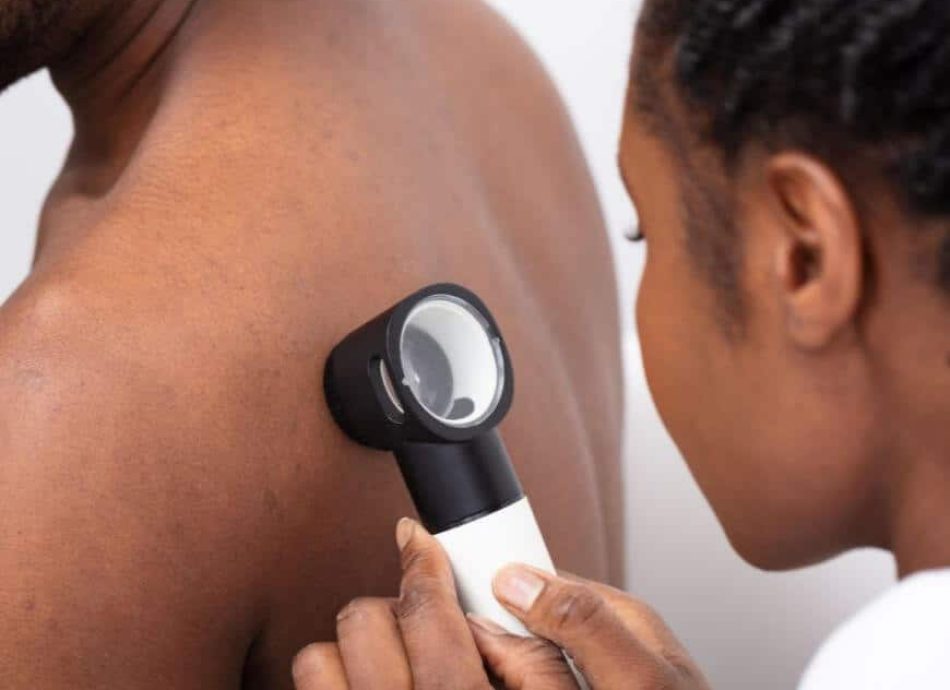
What our Customers Say
WHY TREAT YOUR SCABIES AT CANTERBURY SKIN AND LASER CLINIC?
Here at Kent’s leading private skin and laser clinic, our experts are specialists in all aspects of dermatology, skin cancer, anti-ageing and beauty treatments. We are one of the few skin clinics in the UK where all medical consultations and treatments are provided by specialist doctors with Dermatology experience and laser training.
Canterbury Skin and Laser Clinic is regulated by the Care Quality Commission, ensuring the best level of treatment is provided to you in a safe environment. Our Clinical Lead Dr Mark Hudson-Peacock is a member of the British Association of Dermatologists, the British Laser Medical Association, the British Hair and Nail Society, the European Academy of Dermatology and Venereology and is certified by the Consulting Room. We have won many awards including the WhatClinic Patient Service Award in 2019 and the ghp Healthcare and Pharmaceutical Awards 2019.
Latest INSIGHTS AND ADVICE

Complete Fall Skincare Guide
Embrace the season of transformation – Autumn. With its vibrant hues, this magical time of year also brings unique challenges for your skin. As the crisp air sets in and the days grow shorter, it’s not only autumn we’re welcoming but also the reminder that
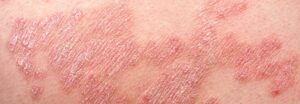
Comprehensive Guide to Understanding Eczema
October is globally observed as Eczema Awareness Month, drawing focus to the people grappling with this challenging skin condition. Our mission, not just in October but always, is to empower you with robust knowledge about eczema‘s root causes, various treatments and useful coping techniques. This
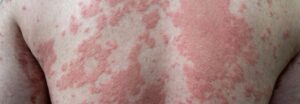
Unravelling Psoriasis: The Focus of Psoriasis Awareness Month
Each August, we commemorate Psoriasis Awareness Month, a time dedicated to elevating public understanding of psoriasis – a chronic skin ailment affecting countless individuals worldwide. The initiative is designed to dispel myths surrounding psoriasis, encourage early detection and advocate for impactful treatment methods. To those








